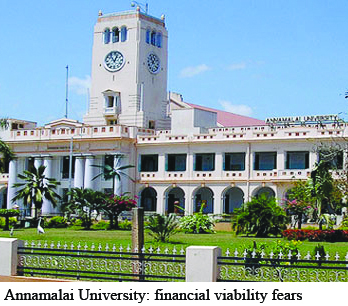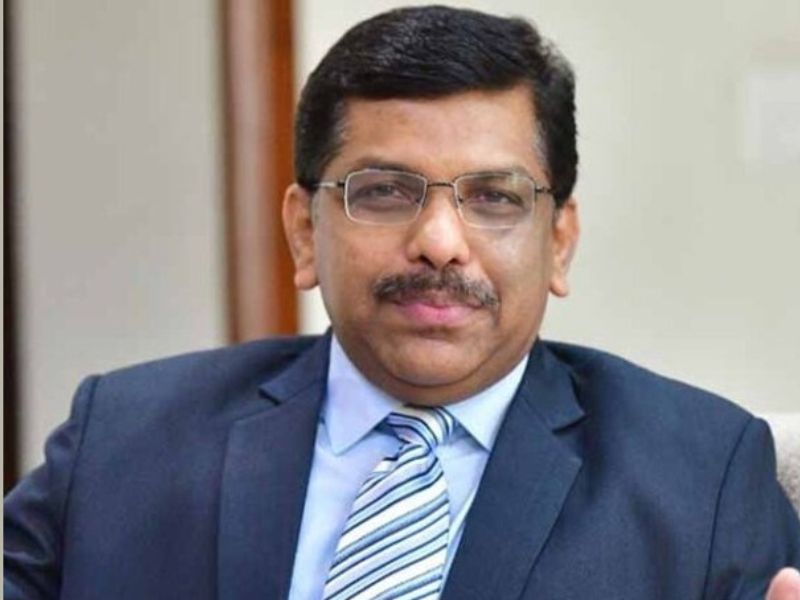A decision taken by the J. Jayalalithaa-led All India Anna Dravida Munnetra Kazhagam (AIADMK) party last November to nationalise the crisis-ridden 84-year-old Annamalai University (AU, estb. 1929), Chidambaram (213 km from Chennai) — arguably India’s most famous teacher certification university for liberally dispensing B.Ed degrees under its distance learning programmes — was warmly welcomed by its 3,896 faculty and 9,434 non-teaching staff. But the varsity’s takeover by the state government for alleged misappropriation of funds and academic malpractices is still generating heated debates in this southern seaboard state which prides itself on its academic accomplishments.
For AU’s faculty and employees who have been demanding that the government revoke the special powers and privileges enjoyed by heirs of the university’s founder Rajah Annamalai Chettiar, this is a welcome and overdue denouement. But AU’s 30,000 students enrolled in its arts, science, engineering, education and medical programmes and another 450,000 who have signed up for its distance education programmes, are doubtful whether nationalisation will help raise poor quality of teaching and falling academic standards.
Following a special audit conducted by a state government team in mid-December which exposed huge misappropriation of funds, rampant violation of UGC norms and other malpractices by the AU management, the state government suspended vice chancellor M. Ramanathan and appointed IAS officer Shiv Das Meena as AU administrator for a period of one year or “until the need for the post ceased”.
Moreover, to annul the special powers vested in the pro-chancellor M.A.M. Ramasamy, heir of the AU founder, on April 14, the state government introduced a Bill in the assembly to repeal the Annamalai University Act, 1928. Under the Act, the descendants of founder Rajah Annamalai Chettiar (who donated 200 acres of land and Rs.20 lakh to establish the university in 1929), were entitled to the post of AU pro-chancellor in perpetuity. Under a new Annamalai University Bill, 2013, the state’s higher education minister will serve as ex-officio AU pro-chancellor and will manage the university and all its properties. Under the 1928 Act, the vice chancellor was selected by the state’s governor, also ex-officio chancellor, from three names recommended by the pro-chancellor. But after the new Bill is passed, the governor/chancellor will appoint the vice chancellor from a panel of three names to be recommended by a search committee.
Although the AU faculty and staff have welcomed the government takeover as a lesser evil, the massive deficit of Rs.272 crore run up by the Chettiar family, as revealed by the government audit report and a recurring financial burden of nearly Rs.22.69 crore per year because of salary raises in the period 2009-11 as well as unpaid provident and contributory pension funds, has raised fears of the financial viability of the newly nationalised varsity.
“The problems the university faces today are largely due to overstaffing, transfer of university funds for other purposes, misuse of powers by the AU management and insufficient administrative control. The government has to ensure transparency in administration, reduce unnecessary expenditure, increase intake of distance education students, start evening college and raise the tuition fees for self-financing medical and engineering courses. If the state government accepts our suggestions, AU can be given a fresh new start,” says K. Mathialagan, joint convener of the Joint Action Council (JAC) of employee unions.
However, this optimism is not shared by informed educationists who have witnessed the continuous decline of government managed higher education institutions in the state. “Tamil Nadu’s state-run universities can hardly be described as models of good administration. Excessive political interference in academic and administrative affairs and rampant corruption in admission, faculty appointments and conduct of examinations, are routine. There is a nexus between academics and politicians in the selection of vice chancellors which is influenced by political connections and money power. I don’t expect a better deal for students and do expect a heavier burden on taxpayers,” says D. Victor, former director of collegiate education and currently director of the Academy for Quality and Excellence in Higher Education, Chennai.
Meanwhile AU’s almost half a million students are anxiously watching whether academic standards will go from bad to worse, or improve under the new dispensation.
Hemalatha Raghupathi (Chennai)
























